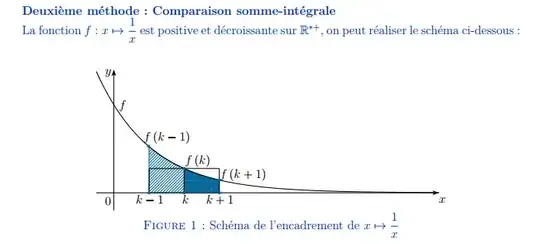The Euler-Maclaurin summation formula captures the intuition that we can approximate the sum by an integral. It gives:
$$\sum_{y<k\leq x}f(k) = \int_y^xf(t)dt+\int_y^x\{t\}f'(t)dt-\{x\}f(x)+\{y\}f(y)$$
for $f\in C^1[y,x]$ continuously differentiable, where $\{\cdot\}$ is the fractional part.
In particular, when $f\to0$ at $\infty$ and $\int_1^\infty f'<\infty$, this gives $\sum_{y\leq k\leq x}f(k) = \int_y^xf(t)dt+\varepsilon(x,y)$ where $\varepsilon\to0$ for $y\to\infty$.
In this case, with $y=n, x=2n, f(t)=1/t$:
$$\sum_{n\leq k\leq 2n}\frac1k = \int_n^{2n}\frac{dt}t+o(1) = \log 2+o(1)$$
(where $o(1)$ is little o notation, meaning that it goes to $0$ as $n\to\infty$). One can make the difference explicit and prove that it is at most $2/n$.
